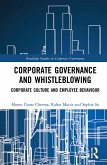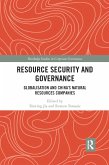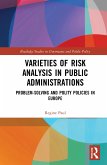Biases, blind spots and bonuses (or incentives more broadly) have led to numerous risk management disasters. Risk governance is a potential solution to these problems yet is not always as effective as we would like it to be. One reason for that is the current dearth of risk governance expertise. This book seeks to address this issue, providing: Understanding of the fundamental forces that cause disasters: the biases, blind spots and bonuses. This understanding is drawn from the disciplines of economics/finance and psychology; Explanation of the structures of risk governance and common challenges experienced in their use e.g. board risk committee, risk/compliance function, assurance function, risk appetite statement, risk disclosures; Thorough investigation of risk culture and its importance in risk governance, including the assessment of risk culture; Understanding of the mechanisms of executive compensation and how they link to risk management - one of the most difficult challenges confronting both risk and remuneration committees; Explanation of the risk management process (based on international standards ISO31000), including practical guidance on risk communication, analysis and treatment; Guidance on the management of strategic risk, emphasising the importance of scenario analysis; Application of these principles to cyber risk, climate risk - two pervasive risks affecting almost every organisation; Numerous case studies and examples drawn from various industries around the world; and Discussion of what has been learned about risk governance from the COVID-19 experience. The book is an essential guide for postgraduate students; participants in professional education programs in governance and risk management; directors; senior executives; risk, compliance and assurance professionals as well as conduct and prudential regulators worldwide.
Hinweis: Dieser Artikel kann nur an eine deutsche Lieferadresse ausgeliefert werden.
Hinweis: Dieser Artikel kann nur an eine deutsche Lieferadresse ausgeliefert werden.








